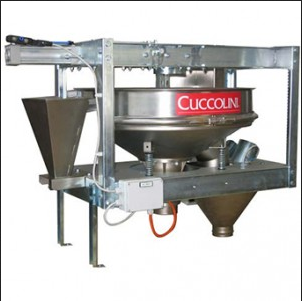Industry analysts expect the construction sector to experience significant growth during the next few years. Despite the general optimism, businesses will need to seek out efficiencies and economies. To this end, the importance of an industrial sieving machine in the construction industry should not be overlooked.
Industry commentators are widely predicting that the construction sector is set to experience a period of significant growth during the next few years. The rationale for this forecast is the boom in building, which is expected to accompany wider economic growth and the government’s innovative and ambitious programme for building new homes. Despite the general optimism, however, expert analysts are sounding a note of caution that construction companies will continue to need to seek out efficiencies and economies to achieve healthy and sustainable expansion. The industrial sieve is of critical importance to the accomplishment of this objective.

Why is an Industrial Sieve so important to Construction Businesses?
Construction works necessarily produce large amounts of debris that needs to be processed. Historically, this exacting, time-consuming and occasionally dangerous task was carried out by hand by labourers. Nowadays, companies have the option of using a vibrating industrial sieve, which mechanises the entire process of grading building waste. Here is a look at four key advantages of using a sieving machine in the construction industry.
Time and Labour Savings
Sorting through waste by hand can be a very time- and labour-intensive activity that tends to be rather expensive and inefficient. Grading materials using an industrial sieve is a relatively speedy process that requires minimal involvement from personnel, saving both time and money whilst increasing productivity.
Waste Reduction
Traditionally, the majority of construction industry residue ended up being discarded. A sieving machine has the capacity to grade solids much more accurately and is able to separate them quickly into materials that can be re-used, sold or repurposed, thereby dramatically reducing waste and potentially generating revenue.
Health and Safety
In addition to being comparatively safe construction industry tools in their own right, industrial sieving machines reduce worker exposure to waste, which has the potential to injure or otherwise harm them. The safety of employees and site visitors is a central concern of all modern building firms, and anything that is designed to minimise risk is a definite advantage.
Environmental Benefits
An industrial sieve has the obvious environmental advantage of speeding up the rate at which a site is cleared of unsightly detritus. Because it reduces waste, it also saves resources, which can help a company manage its environmental footprint. Likewise, hazardous materials are more easily identified, which means they can be disposed of quickly, safely, and in accordance with the relevant legislation.
There are numerous models of industrial sieving machines, and their price structures can vary significantly. Construction companies that are looking for efficiencies and economies, though, will usually find that the initial investment outlay is quickly recouped through reduced waste, decreased man hours, and lower costs along with increases in efficiency and productivity.




